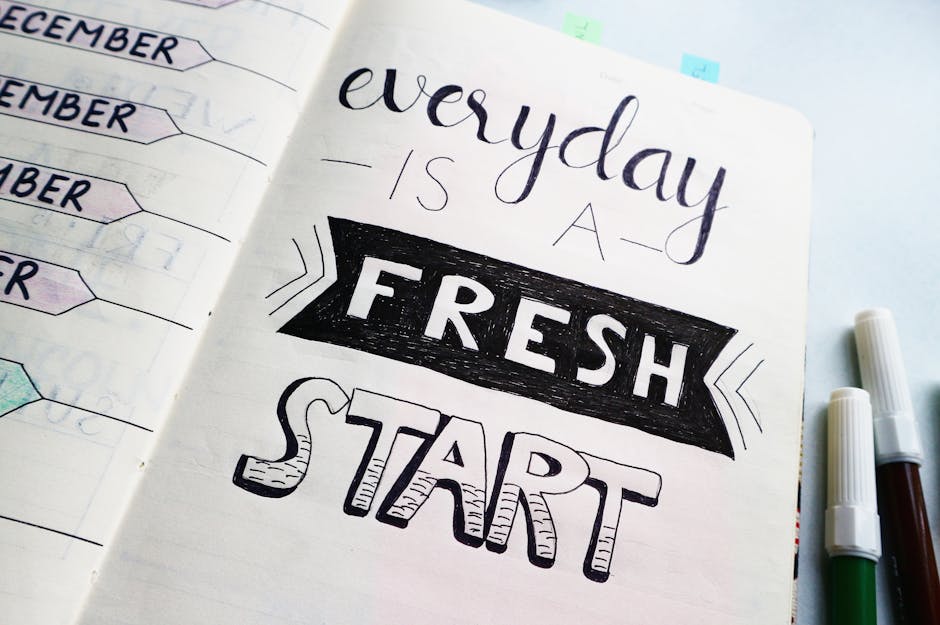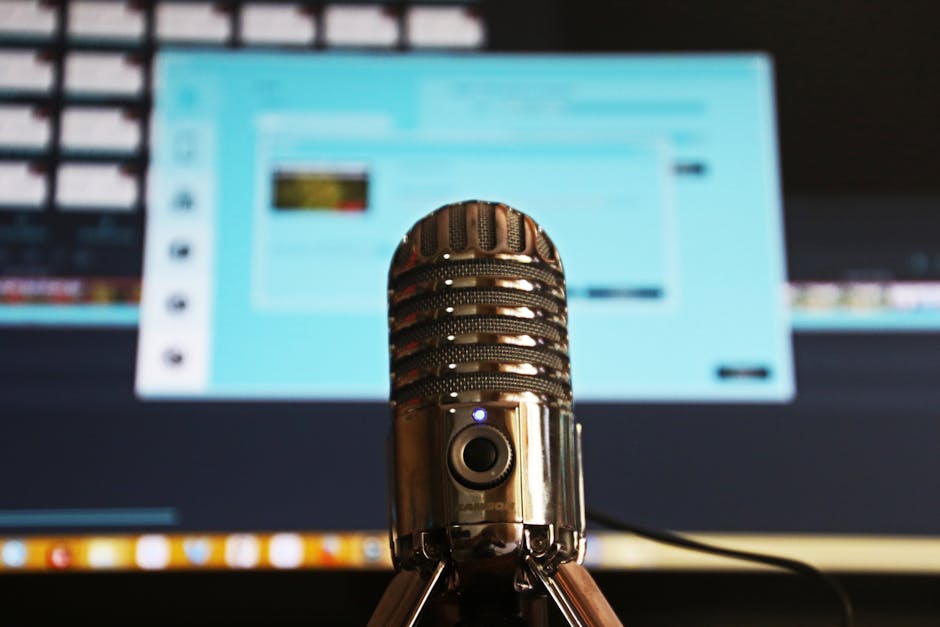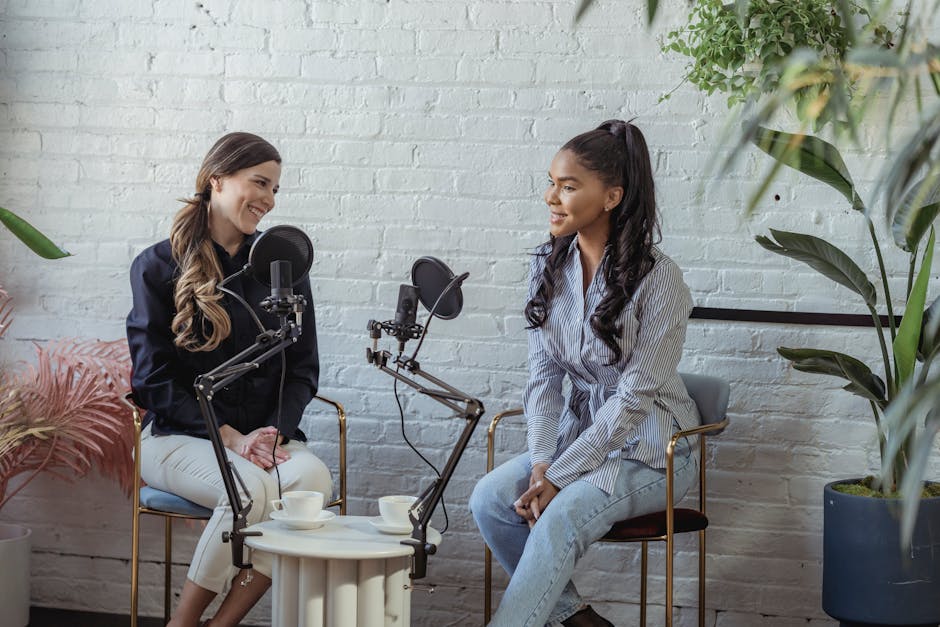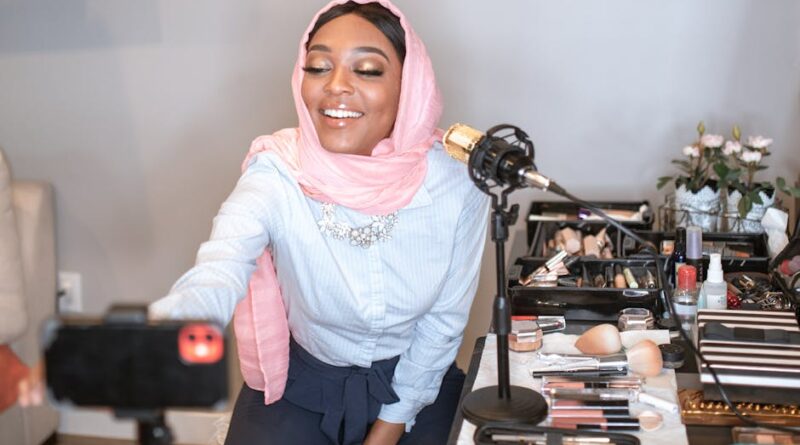How to Start a Creative Podcast
Podcasting has become a popular medium for sharing stories, ideas, and expertise in the digital age. With over 2 million podcasts available and millions of episodes to choose from, starting a podcast can seem daunting. However, with the right tools, strategies, and creativity, anyone can launch a successful podcast. In this article, we will delve into the world of podcasting and explore how to start a creative podcast that stands out in a crowded market.
The Rise of Podcasting

Podcasting has seen a meteoric rise in recent years, with more and more people tuning in to their favorite shows on-the-go. From true crime to comedy, from business to personal development, podcasts cover a wide range of topics and genres, catering to diverse audiences. The flexibility and accessibility of podcasts make them a powerful tool for communication and storytelling.
According to a report by Edison Research, over 80 million Americans listen to podcasts every week. This growing audience presents a unique opportunity for content creators to reach and engage with listeners in a meaningful way. Whether you are a budding entrepreneur, a passionate storyteller, or an expert in your field, starting a podcast can help you connect with your target audience and build a loyal community around your content.
Finding Your Niche

Before diving into the world of podcasting, it is essential to identify your niche and target audience. What topics are you passionate about? What expertise or unique perspective can you bring to the table? By narrowing down your focus and defining your niche, you can create content that resonates with your audience and sets your podcast apart from the competition.
For example, if you are a food enthusiast, you could start a podcast exploring different cuisines, interviewing chefs, and sharing recipes. If you are a fitness expert, you could create a podcast offering workout tips, nutrition advice, and motivational stories. By honing in on your niche and catering to a specific audience, you can attract loyal listeners who are interested in what you have to say.
Planning Your Podcast

Once you have identified your niche, it is time to plan your podcast. This includes defining your format, structure, and style of the show. Will your podcast be interview-based, storytelling, solo commentary, or a combination of formats? Will you have recurring segments, guest hosts, or special features?
It is also important to decide on the length and frequency of your episodes. Some podcasts release new episodes daily, while others follow a weekly or bi-weekly schedule. Consider what works best for your content, audience, and production capabilities. Consistency is key in podcasting, so establish a regular publishing schedule that you can commit to.
Furthermore, think about the tone and branding of your podcast. What vibe do you want to convey to your listeners? Create a memorable name, design eye-catching cover art, and develop a unique voice for your show. Your branding should reflect the essence of your podcast and attract potential listeners at first glance.
Recording and Equipment

One of the most critical aspects of podcasting is the quality of your audio. While you don’t need to invest in expensive equipment right away, having a decent microphone and headphones can significantly improve the sound of your podcast. There are many affordable USB microphones available on the market that deliver professional-quality audio.
In addition to a microphone, you may also need a pop filter to reduce plosive sounds, a microphone stand to keep your hands free while recording, and a pair of headphones to monitor your audio quality. Recording software such as Audacity or GarageBand can help you edit your episodes and add music or sound effects to enhance the listening experience.
Find a quiet, well-insulated space to record your podcast, free from background noise and distractions. Consider investing in acoustic panels or soundproofing materials to improve the acoustics of your recording area. Test different microphone placements and settings to find the optimal sound for your voice.
Editing and Production
Editing is a crucial step in the podcast production process. Trim out any mistakes, pauses, or dead air to keep your episodes engaging and polished. Add music, sound effects, and transitions to enhance the flow of your show. Use editing software to mix different audio tracks, adjust volume levels, and create a cohesive listening experience.
There are many editing tools available for podcasters, ranging from beginner-friendly options to advanced software with professional features. Experiment with different editing techniques, listen to other podcasts for inspiration, and develop your unique editing style that complements your content.
Once your episode is edited and finalized, it’s time to upload it to a hosting platform. Podcast hosting services such as Libsyn, Podbean, or Buzzsprout can help you distribute your episodes to major podcast directories like Apple Podcasts, Spotify, and Google Podcasts. These platforms also provide analytics, scheduling tools, and monetization options to help you grow your podcast and reach a wider audience.
Promoting Your Podcast
Creating high-quality content is only half the battle in podcasting. To attract listeners and grow your audience, you need to promote your podcast effectively. Utilize social media platforms, email newsletters, and your website to share new episodes, behind-the-scenes content, and updates with your audience.
Collaborate with other podcasters, influencers, or brands in your niche to expand your reach and tap into new audiences. Consider guesting on other podcasts, participating in virtual events, or running giveaways to increase your visibility and connect with like-minded creators.
Engage with your listeners through comments, reviews, and social media interactions. Build a community around your podcast by responding to feedback, asking for suggestions, and involving your audience in the creative process. By fostering a sense of belonging and connection, you can turn casual listeners into loyal fans who eagerly await each new episode.
Monetizing Your Podcast
While podcasting can be a rewarding creative endeavor, it can also be a source of income. There are several ways to monetize your podcast and generate revenue from your content. Popular monetization strategies include sponsorships, affiliate marketing, merchandise sales, and listener donations.
Partnering with brands and advertisers can help you earn money through sponsorships and endorsements. Look for companies that align with your podcast’s values and target audience to create authentic, engaging sponsored content. Affiliate marketing allows you to earn commissions by promoting products or services and driving sales through your unique affiliate links.
Consider launching a Patreon or Ko-fi page where listeners can support your podcast through monthly subscriptions or one-time donations. Offer exclusive perks, bonus episodes, and behind-the-scenes content to entice fans to become patrons and contribute to the growth of your show.
Expert Opinions
We reached out to podcasting experts for their insights on starting a creative podcast:
“The key to a successful podcast is authenticity. Be yourself, share your story, and connect with your audience on a personal level. People listen to podcasts for the human connection, so don’t be afraid to show your true colors.” – Sarah, host of ‘The Authentic Podcast’
“Consistency is crucial in podcasting. Stick to a regular publishing schedule, engage with your listeners consistently, and deliver high-quality content every time. Building trust and loyalty takes time, so be patient and persistent in your podcasting journey.” – Jason, host of ‘The Consistent Creator’
Conclusion
Starting a creative podcast is a rewarding endeavor that allows you to share your voice, passion, and expertise with the world. By finding your niche, planning your podcast, investing in quality equipment, and promoting your show effectively, you can create a podcast that resonates with listeners and stands out in the crowded podcasting landscape.
Remember that podcasting is a journey, not a destination. Embrace the process, experiment with different formats and styles, and continuously improve your craft. Whether you are a seasoned podcaster or a beginner looking to start your first show, the world of podcasting offers endless possibilities for creativity, connection, and growth.
To wrap things up, starting a creative podcast is not just about recording episodes and uploading them online. It’s about telling compelling stories, sharing valuable insights, and building meaningful relationships with your audience. So, grab your microphone, hit record, and embark on your podcasting adventure today!




